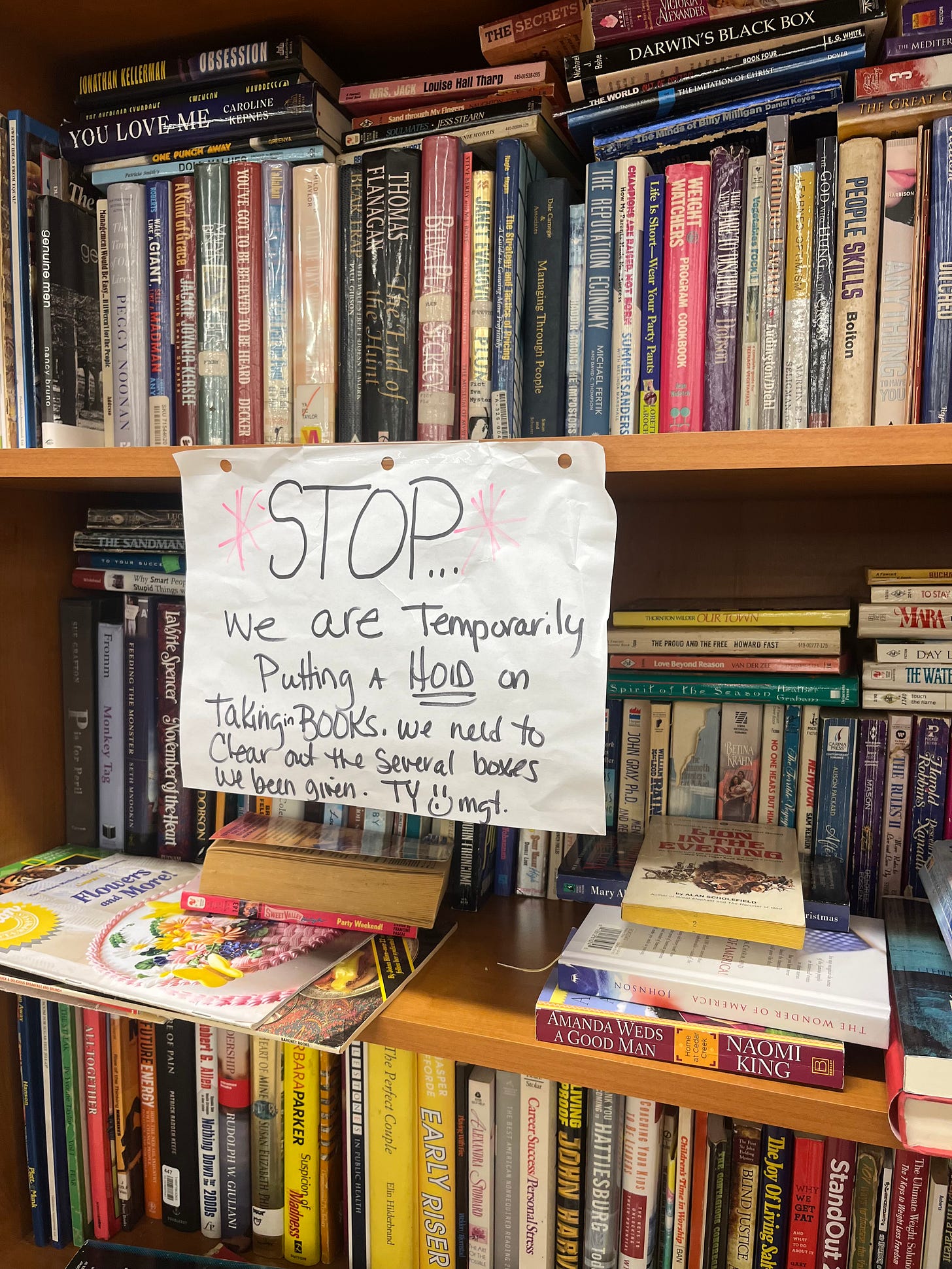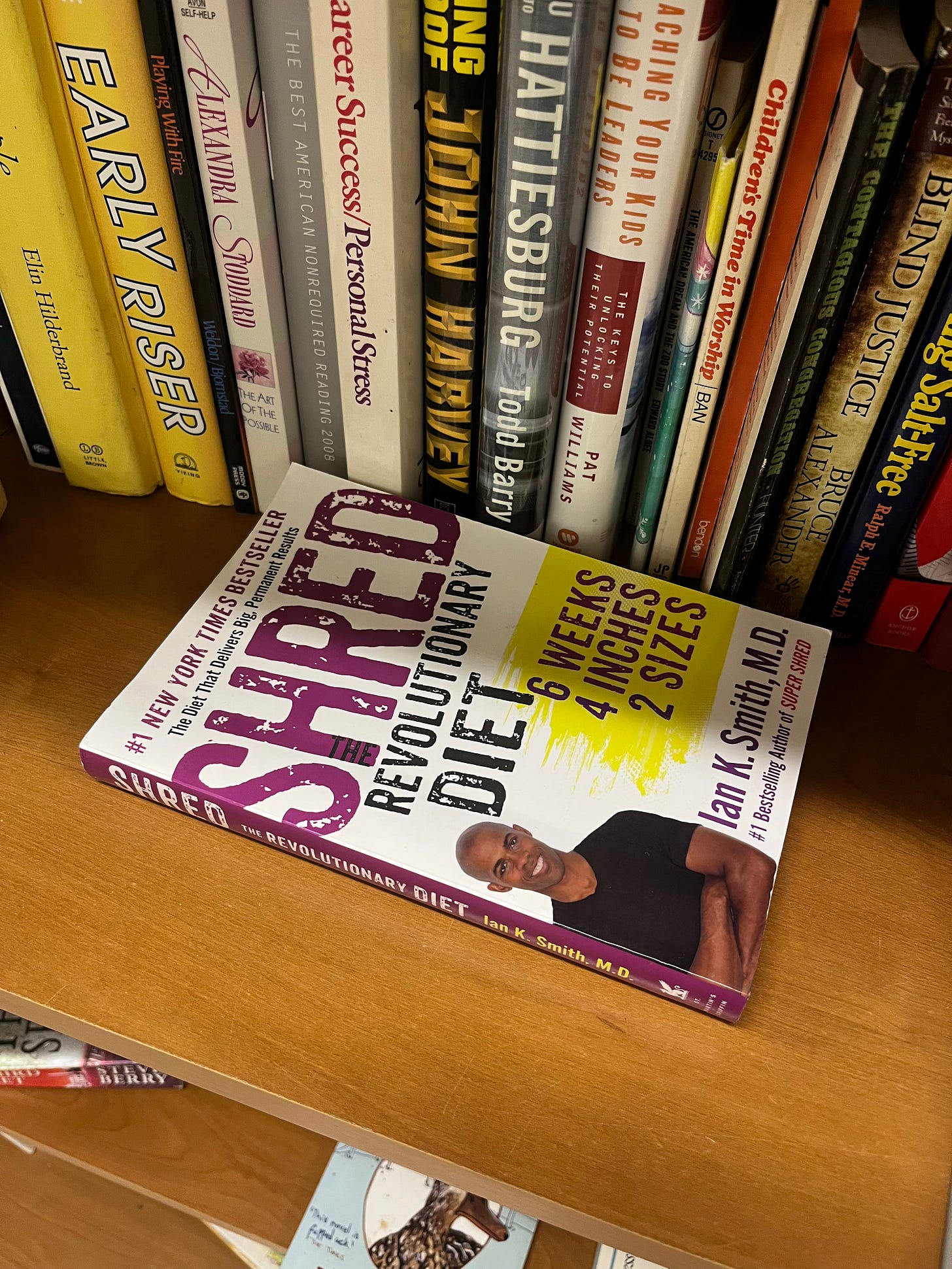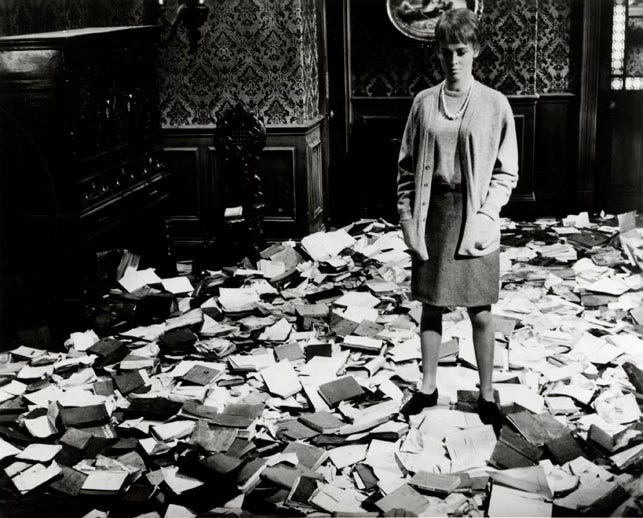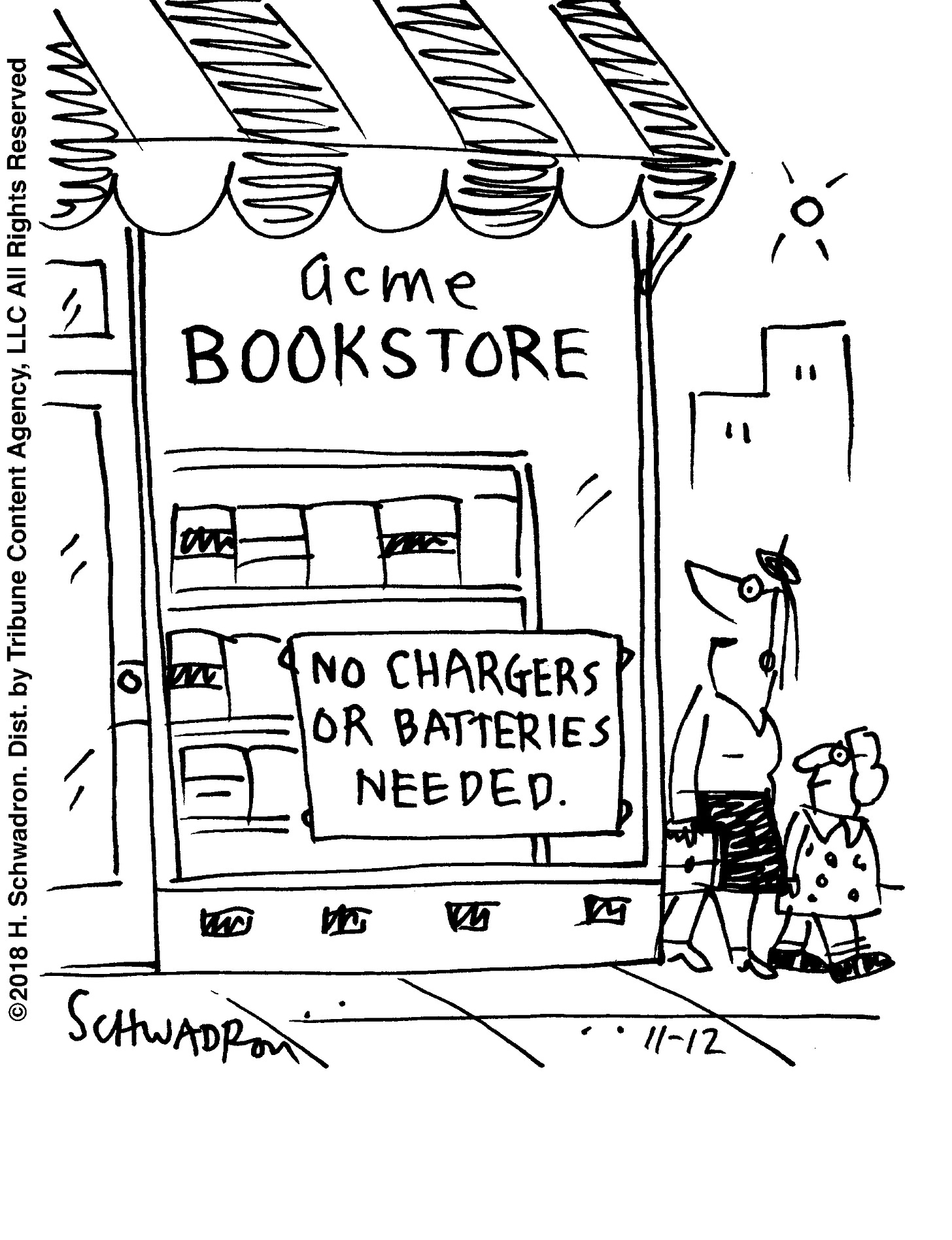By Darren Johnson
Journal & Press
When I have a rare buck or two in my pocket after paying with my credit card at the Greenwich Hannaford checkout, I’ll usually check out this shelf full of books there, near the exit.
The book sale supports a local charity — I forget which — maybe something to do with dogs? (Correct me in the comments, if you know.) There’s a clear plastic receptacle to the left of this shelf where you can place your $1 for a paperback and $2 for a hardcover.
There’s been a sign up lately saying please don’t drop off more books. They have too many to deal with for now. More supply than demand.
This is a common problem for people who deal with used books. Our local library even provided a column to the Journal & Press recently saying similar — and they are much nicer about it, but the reality is no one wants most of these books.
But the keyword is most. Some of the books people want. I put a buck in the till and picked up this one.
African colonizer literature from the last century is an occasional guilty pleasure of mine. Not that I agree with the overall sentiment of treating people considered less civilized as exotic props; and while I take that perspective with a grain of salt, such books do capture a moment in time that’s now largely glossed over as history gets re-written by each new generation and social movement.
But there were other books on the shelf no one will probably ever buy, even for just a buck or two.
While he’s not fat, I wouldn’t say Dr. Phil embodies “the picture of health.”
He probably didn’t even write the book. Few celebrities write their own books. Some “name” authors also use ghosts. With AI, even your barely literate Uncle Ray can have a literate book written by just providing the bot with a very rough outline. A few scribbles on a cocktail napkin can be instantly spit out as a whole book!
And who’s this guy? He looks “naturally thin.” Why would I take weight loss advice from someone who just happens to already have a fast metabolism and normal food cravings (while I have a slow metabolism and also grabbed the on-sale Newman’s knockoff Oreo cookies before the checkout)?
And do he and Dr. Phil have the same barber? (Sorry, us heavier guys with hair always use that as our one-up.)
Most books are of their era. Remember when people had to be taught how to use a computer?
I got my start teaching three-credit Intro to Computers courses at a small college in the 1990s. In one class, an older person was flailing the mouse high in the air, above her head, expecting it to work. I knew at that point I had to slow down my teaching.
Now we all somehow magically know how to use computers. I see babies scrolling iPads.
Colleges don’t offer such simple courses anymore. High schools no longer have typing/keyboarding classes, either.
Now I can teach advanced design applications with no learning curve. Students just “get it” right away. They just jump right in.
But they aren’t reading books anymore. Maybe the need isn’t there now.
I’ve read a lot of books. While I teach Journalism, my degrees are in English. My daughter, who likes older literature, often asks me if I’ve read an author, and very often I have. She was asking about Jean Rhys yesterday. “Yes,” I said. “‘Wide Sargasso Sea’ and one or two other books of hers. She has a delicate style, if I recall.”
My goal when younger was to be a creative writer, and I put in all of the work to be one, but I’ve probably only grossed a few grand lifetime off of creative writing, while journalism provides a much more instant audience, and a newspaper is something I can actually sell. Businesses even buy ads in it. How novel!
Here’s a novel I wrote before the pandemic. I don’t promote it because, even if I do, it only brings in a few bucks a month, tops. And I often feel awkward about self-promotion, and the self-indulgence one can sometimes have when creating a work. I don’t want to seem that way.
Many aspiring artists don’t realize it when they are being self-indulgent, but once someone can transcend that urge and selflessly serve an audience instead is when maybe, with some luck, that artist might catch on.
In any case, the problem with the book shelf in the grocery store is that it isn’t curated. Take out the books that are no longer relevant, if they ever were.
It is a nice thought that people still feel all books have value, and would be a shame to throw away.
Like the rebels in “Fahrenheit 451.”
Even though authors don’t make any money on the sale of used books. It’s not like music, a TV show or a movie, where the participants can get residuals for life.
And maybe Dr. Phil’s book might be better off in an incinerator?
So the other, more deserving authors on that shelf can breathe a little bit more. Because it’s a tough business, getting one’s words out there. By buying these books, we can keep these deserving authors’ thoughts alive, even long after they have departed.
And what’s a buck or two for charity? (I forget which.)
And Now for the Comics — ‘9 to 5’ by Harley Schwadron
More tomorrow!













I agree, old books with outdated perspectives can still teach us something when we read them, if only to show us how insidious those racist ideas were. Your colonial Africa books remind me of books I read as a child (they were old even then, I think from the 1920’s or 30’s, but still in circulation at my local library) about a couple who raised pedigreed collie dogs and their adventures. “Lad, a Dog” was the name of the most well known, but the author wrote a whole series. I gobbled them up as a kid, loving the stories of the heroic and almost magically intelligent collies. Lassie had nothing on them! I recently found one and read it again for a lark and I was astonished by the casual racism and elitist white privilege that dripped off every page. Every villain was “swarthy” and characters who were not of the upper classes were portrayed as borderline criminals who couldn’t be trusted. A lot of that kind of stuff went over my head as a kid, and the books were old enough that I recognized even then that some of the attitudes and epithets were wrong, the use of the N word, for example. But if those books were representative of children’s literature from back then, it’s no wonder racism has such a hold on this country. We can’t fix it if we don’t know how it starts. I am more grateful than ever that the books my grandkids have grown up reading are kinder, and more inclusive and diverse!
Cute column Darren, brought a smile!